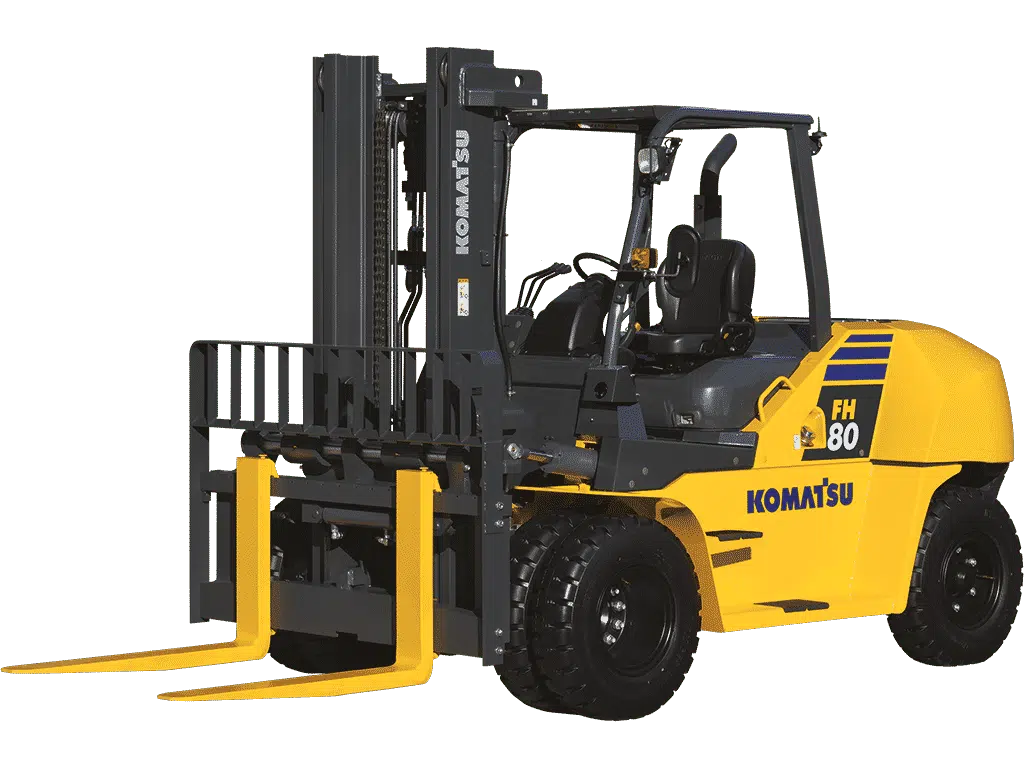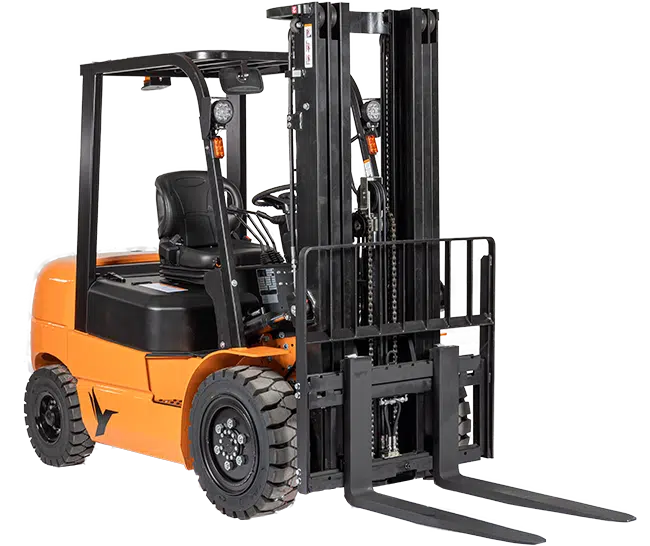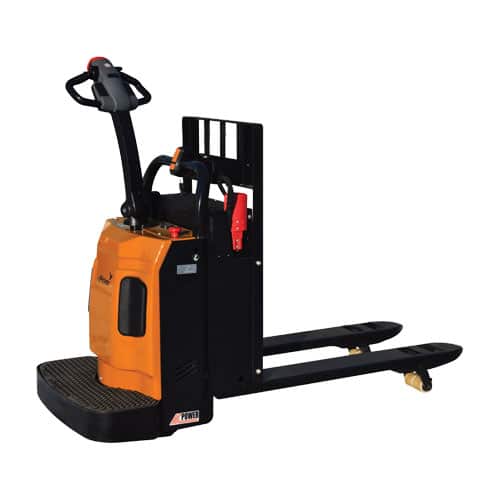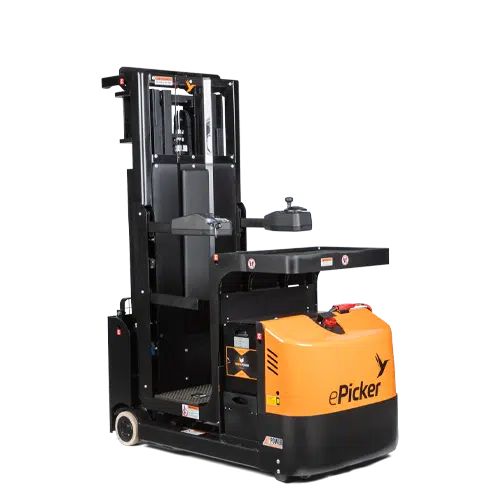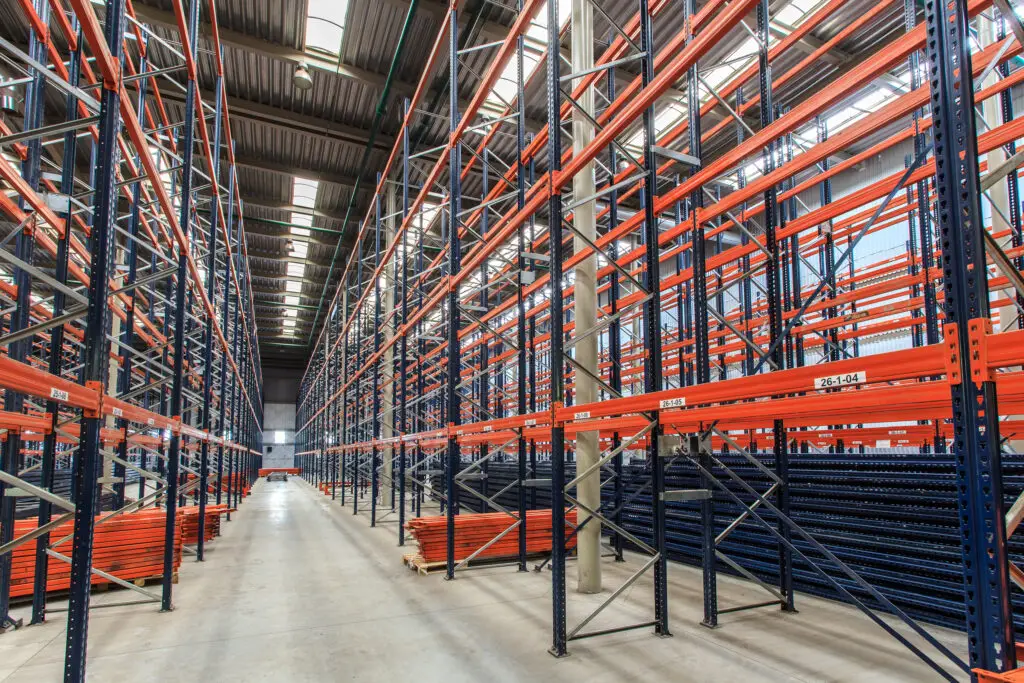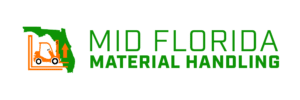- Material Handling Equipment
- Automation
- Conveyors
- Dock Levelers
- Electric Pallet Stackers
- Electric Pallet Jacks
- ePicker Electric Forklifts
- Electric Work Assist Vehicles
- Floor Sweepers & Scrubbers
- Forklifts
- Hand Trucks
- Pallet Shuttles
- High Speed Doors
- Scissor Lifts
- Pallet Jacks
- ePicker Electric Forklifts, Stackers & Pallet Jacks
Popular Products
- Storage Solutions
We’re your one-stop source for sales, planning and installation:
MenuAn affordable, fast and easy way to add more office space to your facility.
Quickly double the space inside an
existing building.Control access to critical areas, valuable inventory and machinery.
Modular units that can be installed
to meet any ISO rating.Industrial strength storage solutions for a range of applications.
Not sure what’s right for you?
Our experts are available to guide you through
the process of selecting the right product. - Our Services
- Warehouse Safety
- Warehouse Layout Design
- Pallet Rack Installation
- Warehouse Liquidation
- Mezzanine Planning & Installation
- Forklift Repair
- Forklift Maintenance Plans
We offer warehouse liquidation services
throughout the state of Florida.The proper warehouse layout ensures
your facility operates at peak efficiency.Our team of mobile technicians can
repair & maintain your forklift, fast.Protect your people and products with
a professional safety review.From the design to installation, we’re the
area’s installation experts.Prefer to finance your purchase?
Explore our fast & flexible financing. - View Our Catalog
- About Us
- Contact Us
- Material Handling Equipment
- Automation
- Conveyors
- Dock Levelers
- Electric Pallet Stackers
- Electric Pallet Jacks
- ePicker Electric Forklifts
- Electric Work Assist Vehicles
- Floor Sweepers & Scrubbers
- Forklifts
- Hand Trucks
- Pallet Shuttles
- High Speed Doors
- Scissor Lifts
- Pallet Jacks
- ePicker Electric Forklifts, Stackers & Pallet Jacks
Popular Products
- Storage Solutions
We’re your one-stop source for sales, planning and installation:
MenuAn affordable, fast and easy way to add more office space to your facility.
Quickly double the space inside an
existing building.Control access to critical areas, valuable inventory and machinery.
Modular units that can be installed
to meet any ISO rating.Industrial strength storage solutions for a range of applications.
Not sure what’s right for you?
Our experts are available to guide you through
the process of selecting the right product. - Our Services
- Warehouse Safety
- Warehouse Layout Design
- Pallet Rack Installation
- Warehouse Liquidation
- Mezzanine Planning & Installation
- Forklift Repair
- Forklift Maintenance Plans
We offer warehouse liquidation services
throughout the state of Florida.The proper warehouse layout ensures
your facility operates at peak efficiency.Our team of mobile technicians can
repair & maintain your forklift, fast.Protect your people and products with
a professional safety review.From the design to installation, we’re the
area’s installation experts.Prefer to finance your purchase?
Explore our fast & flexible financing. - View Our Catalog
- About Us
- Contact Us

